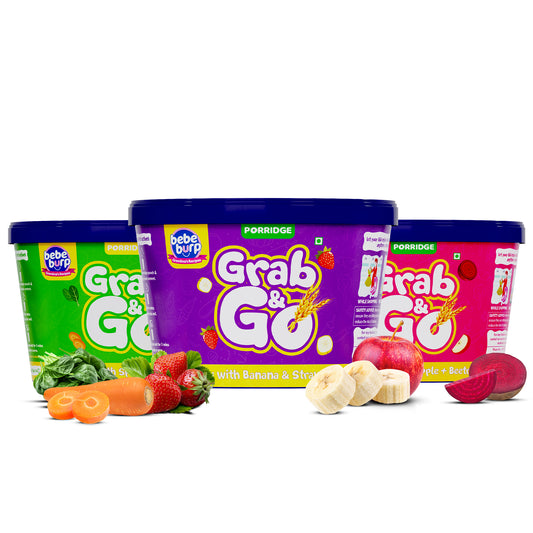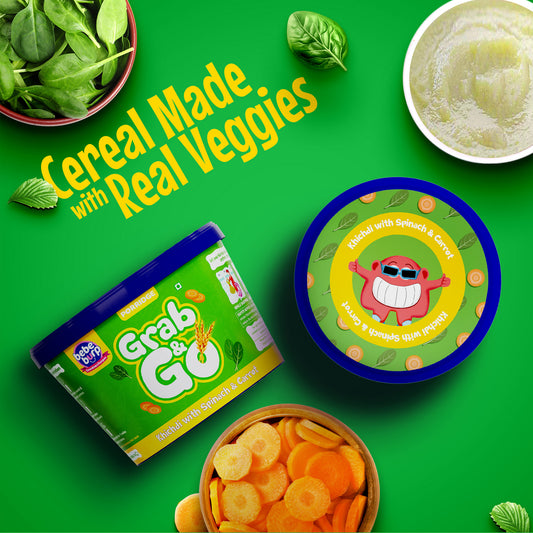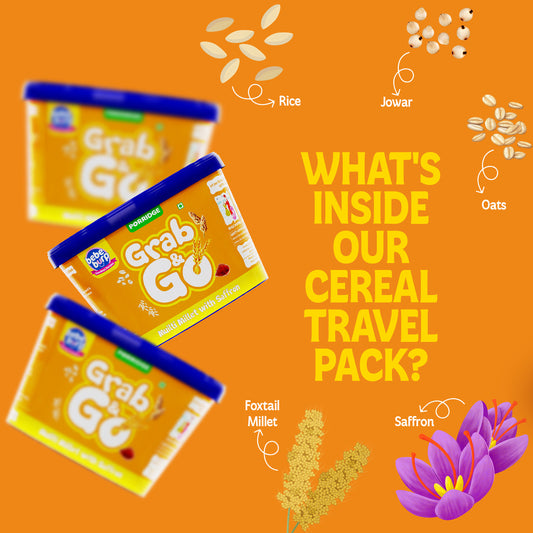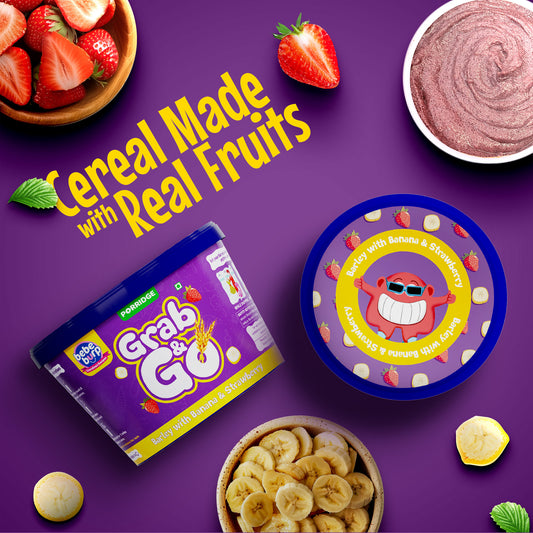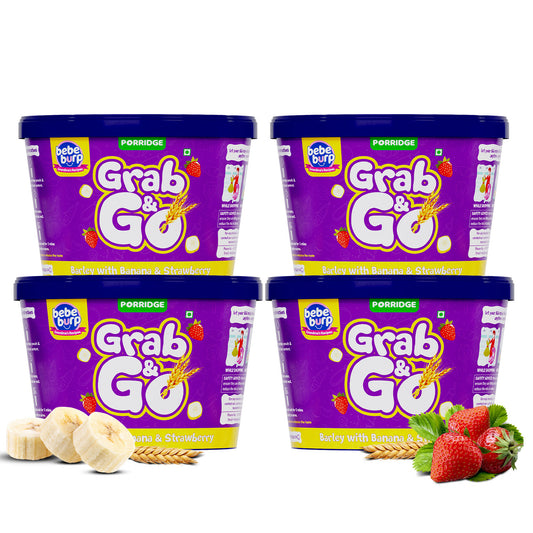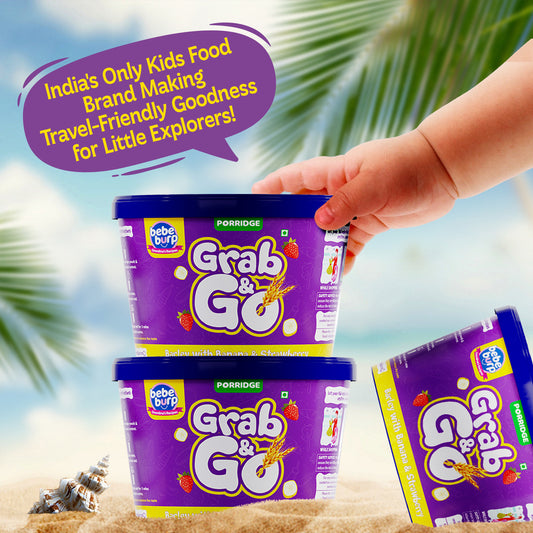A baby’s world is fascinating. Everything is new, and just waiting to be explored by tiny fingers and big eyes! A baby’s environment is filled with things and people that he can touch, see, smell, hear, and even taste. Babies use these senses as the primary way to understand the workings of their world: how Mom’s skin smells, how Dad’s arms feel, how milk tastes, how soft the blanket is, how cool the floor feels, how firm a building block is, and so much more.
A baby’s brain develops the most from birth till the age of three. Millions and millions of synapses are formed in the brain as the baby discovers, learns, and understands new things, from how to crawl on his little legs, to how to work a jack-in-the-box with his hands, to how to hold a spoon and feed himself. Thus, this age range of 0 to 3 is crucial when it comes to helping your baby develop certain important cognitive skills, like logic and reasoning, problem-solving, and decision making.
It is beneficial to a child if he is able to learn such skills at an early age, so that as he grows up and becomes of school-going, homework-doing, and exam-giving age, he is able to overcome educational barriers, and can grasp new concepts easily.
Are there some ways that you, as a parent, can help your baby develop logic skills early on? Yes, absolutely! Read on to find out!
- Dive into sensory exploration.
Give your baby different objects that feel different to the touch. Let him touch a ball of soft cotton and then a mildly rough woollen sweater, and feel the difference between the textures. You can do this with smooth and spiked balls, the sticky and smooth sides of tape, soft and crinkly leaves, and more!
- Use your words.
Talk to your baby – about everything! Whether it’s playtime, dinner time, bed or bath time, talk to your little one about what he’s doing and what’s he playing with. Use the correct words for his toys, such as ball, car, book, doll, and use the right action verbs, like eating, running, reading, playing. This will help him associate the word to the object in hand or action being done, and he’ll pick up on your verbal cues quickly enough.
- Teach object permanence.
In other words, show him that even if something is hidden, it doesn’t mean that it has disappeared. This is an important milestone to cross, and will help your little one enhance his reasoning skills at a young age. Play simple games like hide and seek or peek-a-boo, which can prove to be delightful and full of giggles for both of you!
- Solve problems together.
It is important to teach your little one how to go about solving a problem on his own. It can be as simple as learning how to take the lid off his toy box, or how to remove a book from a short pile. Lead by example, and demonstrate how to fix these little obstacles. Then, let him try on his own. When he succeeds, the memory of it will stay with him, and he’ll be more inclined to try by himself the next time.
- Encourage all sorts of exploration.
Children are naturally curious. Letting them safely explore their curiosity is highly beneficial for them, as it aids in healthy brain development. Let your baby roll, shake, rattle, bang, feel, and poke his toys to figure out how they work. This will also lead him to understand cause and effect: shaking a rattle produces a soft sound, banging metal spoons together makes a loud sound, shaking a ball makes lights appear, squeezing a teddy bear feels soft and squishy, etc.
- Make nutrition a priority.
There’s a direct linkage to nutrition and brain development in the early years. Proper nutrition makes a way for nutrients and energy that is required to aid brain function and development in a way no amount of external stimulus can. On the flipside, nutritional deficiencies in earlier years can drastically affect cognition and ability to reason. Diets high in saturated fats and trans fats can impact learning and memory too. Building strong and healthy food habits in the first few years of your child’s life can set the tone for a healthier and smarter future.
- Make habits out of these behaviours.
It’s not enough to engage in these developmental behaviours at only some points in a day or week – everything you do for your baby’s brain development should be incorporated into a daily routine, and repeated over a long period of time. It is these repetitive activities that ensure the long-term benefits enjoyed by a child with healthy cognitive development. For example, include sensory exploration in bath time, teach object permanence during playtime, and read picture books at bedtime.
Helping your baby develop his logic and reasoning skills at a young age will prepare him for school, social situations with peers, and eventual obstacles in academics in terms of brand-new concepts and knowledge. He will be better able to understand how things work, how to solve problems if he doesn’t know how something works, and how to make decisions that will serve him best in a given situation.
And, there’s a bonus to be had, too, as spending this wonderful time playing with your baby will create a strong bond of love and friendship, and your little one will feel safe, happy, and confident in your presence! It’s an absolute win-win!
In case of any further questions and clarifications regarding your child’s development, health, and nutrition, do get in touch with your pediatricians.
Tags : organic baby food, baby food , instant baby food, baby food 6 months, baby food at 4 months, baby food at 4 months, baby food at 4 months, baby food healthy, gerber, nestle, Holle, Evermaa, slurpfarm, cookies, cookies recepie, oatmeal cookies, ragi cookies, cookies near me, baby cookies, baby biscuits Website tahgs : Keyword 6 month baby food chart, baby food, 7 months baby food, 7 months baby food chart, 7 month baby food chart, 6 month baby food, 10 months baby food, 1 year baby food, baby food chart, 10 months baby food chart, farex baby food, baby food recipes 6-8 months, baby food product, 6 month old baby food, 4 month baby food, 8 month baby food chart, 1 year baby food chart, 11 month baby food, 8 month baby food recipes, 5 months baby food chart, protein powder, whey protein powder, best protein powder, amway protein powder, best protein powder in india, women protein powder, protein powder for men, b protein powder, nutrilite protein powder, oziva protein powder, d protein powder, ensure protein powder, protein powder for weight gain, best protein powder for weight gain, vestige protein powder, protein powder for women, herbalife protein powder, protein powder for weight loss, porridge, porridge meaning, porridge meaning in hindi, porridge oats, porridge pronunciation, rice porridge, porridge in hindi, ragi porridge, what is porridge, porridge meaning in english, porridge meaning in tamil, porridge meaning in telugu, porridge meaning in bengali, porridge recipe, oatmeal porridge, wheat porridge.


